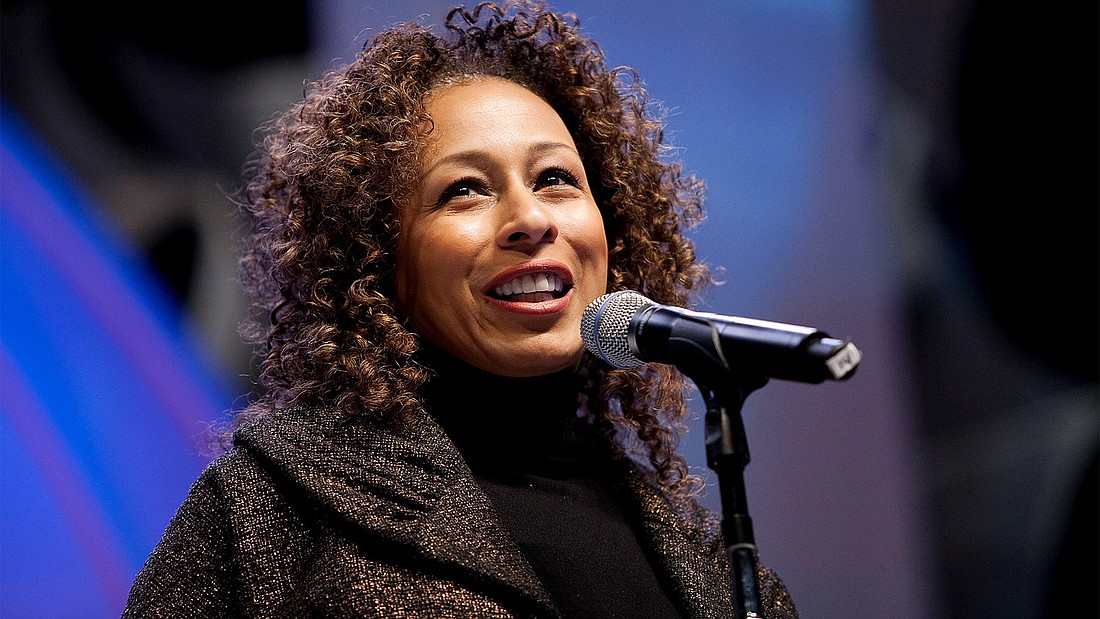- April 23, 2024
-
-
Loading

Loading

It was a concert of ups and downs that was presented this past weekend by the Sarasota Orchestra led by guest conductor Evans Haile. The real upside of the performances was the orchestra, itself, which proved it can play well under almost any circumstance. The down side was Haile who stumbled almost as often as he stood up to the challenges of the all-American program.
Brash, bright, in your face, sensitive, embracing, vulgar, honest, upright and decadent, American music is, by nature, like America, itself. As a people we are full of contradictions, and that’s what composers Ron Nelson and Joan Tower emphasized in their works, which opened the program.
Nelson’s popular “Savannah River Holiday Overture” is sprightly, optimistic and dazzling, filled with lots of brass and percussion, and would work well as the soundtrack for a Superman movie or a 1960s big city television detective program. Tower’s poly-rhythmic, multi-metered “Sequoia” is a big tone poem that paints the concentric circles of the rings on the trunk of the giant redwoods with a tonal palette that expands to include 20th century musical languages.
The orchestra played both really well, even though Haile, a left-handed conductor who wields not a baton but a pencil, beat time more than he painted colors with the forces he had at hand. There was little attention paid to dynamics or subtleties beyond those the composers had printed into the scores. Still, Haile did a good job holding everything together, and the Sarasota Orchestra was able to do some really outstanding work without much help from the podium.
Aaron Copland’s affecting “Lincoln Portrait” fared better with Haile holding the ensemble in check while the glamorous and beautifully spoken actress, Tamara Tunie, read the patriotic and poignant words of the 16th president of the United States. Even with the extraordinary and imposing memory of the voices of Marian Anderson, Gregory Peck, Henry Fonda, James Earl Jones and Carl Sandburg echoing in my ears, Tunie gave a reading of these texts that was moving, passionate and dignified, lending just the right weight and emphasis to, “That is what he said. That is what Abraham Lincoln said.” Those words, underscored by Copland’s music and the orchestra’s playing, were inspiring, stirring and memorable.
The Copland was cleverly juxtaposed with Samuel Barber’s poignant and tender “Adagio for Strings.” Written originally as a movement in a string quartet, this piece — often played at funerals — has been arranged (mostly by the composer) for various combinations, from string orchestra to chorus. For this performance with the lustrous strings of the Sarasota Orchestra, Haile laid down his pencil and conducted beautifully, using both hands to elicit sweeping phrases and warm sounds from the ensemble.
Unfortunately, for the finale of the concert, Gershwin’s beloved “Rhapsody in Blue,” the conductor chose to be soloist as well as conductor, and failed in both roles. Leaving aside the multiple wrong notes he played, it was one of the weirdest performances of this well-known work I’ve ever heard. The Steinway was almost inaudible at times, sounding muffled and underpowered. The pianist’s phrasing was inconsistent and fitful, especially toward the finale when he set one tempo for the orchestra and another for himself. Who would do that? And why?
One other thing must be mentioned. I’m all for conductors speaking to their audiences, but they need to temper their talks with a sense of who and what that audience is. Haile, who addressed us as if we were at a young people’s concert, was longwinded, condescending and embarrassing. Please. Unless you’re a Leonard Bernstein, let the music speak for itself.